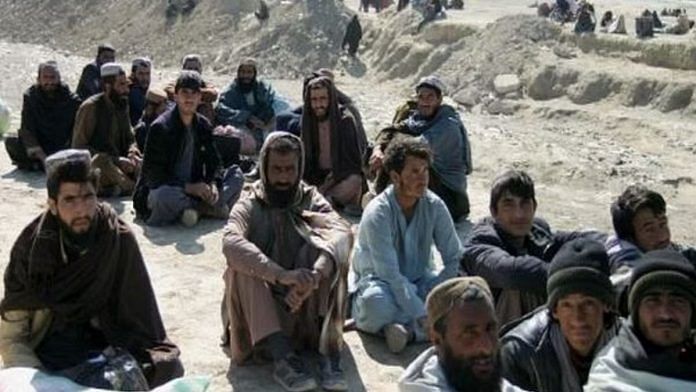New Delhi: As the 1.4 million Afghan refugees got a temporary breather from Pakistani authorities from deportation, relief also came for the Afghan Ismailis with the government providing them immunity from arrest after it came to be known that the Canadian government was considering their relocation. This immunity, however, has started a debate among Pakistanis who seem divided on the fate of the Ismailis.
“It’s a very wise decision,” says one media figure from North-West Pakistan. For the most part, it seems that people support this move for its capacity to protect this religious minority from greater persecution in Afghanistan. Expectedly, there are those who question the decision. There are some who see in this decision the ‘faith-based selective victimisation’ of some Afghans instead of others. They seek to remind people that there are many religious minorities in danger, of which the ‘Ismaili communities are but one’.
In response to those impugning the government’s decision to forgo deportation for now, many have simply asked: “what’s wrong with that?”.
Ismaili Muslims
In Pakistan, Ismaili Muslims form a minority branch of the Shia Muslim community, which itself is a minority group within the predominantly Sunni country. In Afghanistan, the Taliban regime is Sunni and has minimised the spaces available for religious minorities. The fear is that, if deported, the Afghan Ismailis would face sustained and powerful persecution from the Taliban.
Seeing as the Pakistani government appears determined to continue with its controversial policy of ejecting undocumented Afghan migrants from the country, the Ismailis need somewhere else to go.
“Afghan Ismailis currently living in Pakistan are being considered by the Government of Canada for resettlement, for which the formalities shall be initiated shortly,” states the Ministry of Interior in Islamabad. This is why the government has ‘requested that members belonging to the Afghan Ismaili community shall not be arrested till further notice’.
Also read: How Wasim Akram thinks Pakistan can qualify for semis—Lock English players in dressing room
Aga Khan IV
Among supporters of the immunity order, there has been a frequent acknowledgement of the significant role played by Aga Khan IV, the 49th and current Imam of Nizari Ismailis, in facilitating the injunction. More than this, some suggest that “Agha Khan has paid for them to migrate to Canada”, though this is yet to be verified.
Khan has been described as the world’s most well-connected man, and his net worth is over £13 billion. In addition to deep pockets, he has the clout to influence government policy around the world.
Working toward sustainable economic growth and protection of cultural heritage in over 30 countries, the Aga Khan Development Network shares partnerships with organisations such as the World Bank, the World Health Organisation, and the European Commission. The Afghans Ismaili will be hoping that their Imam can indeed mobilise his considerable resources to save them from the potential horrors that Amnesty International predicts could await them in Afghanistan.
Violation of human rights
Since 31 October—the Pakistani government’s deadline for undocumented refugees to leave voluntarily—more than 2,00,000 Afghans have crossed into Afghanistan. They arrive in a country whose economy is crippled and people are starving. Across the board, humanitarian organisations fear the human rights abuses that incomers may face. The Office of the UN High Commission for Human Rights has expressed its worries that civil society activists, former government officials, and journalists could face detention and torture. In particular, women will be denied access to secondary and tertiary education, while being excluded from public life.
The Pakistani government has been warned by human rights organisations that it is reneging on its international legal commitments. One such responsibility is the principle of non-refoulement, the practice of not forcing refugees to go to a country in which they are liable to face persecution. In addition, Amnesty International’s investigations have found that in at least seven detention centres, no legal rights are delivered to detainees, and those centres are in violation of the right to liberty and a fair trial.



